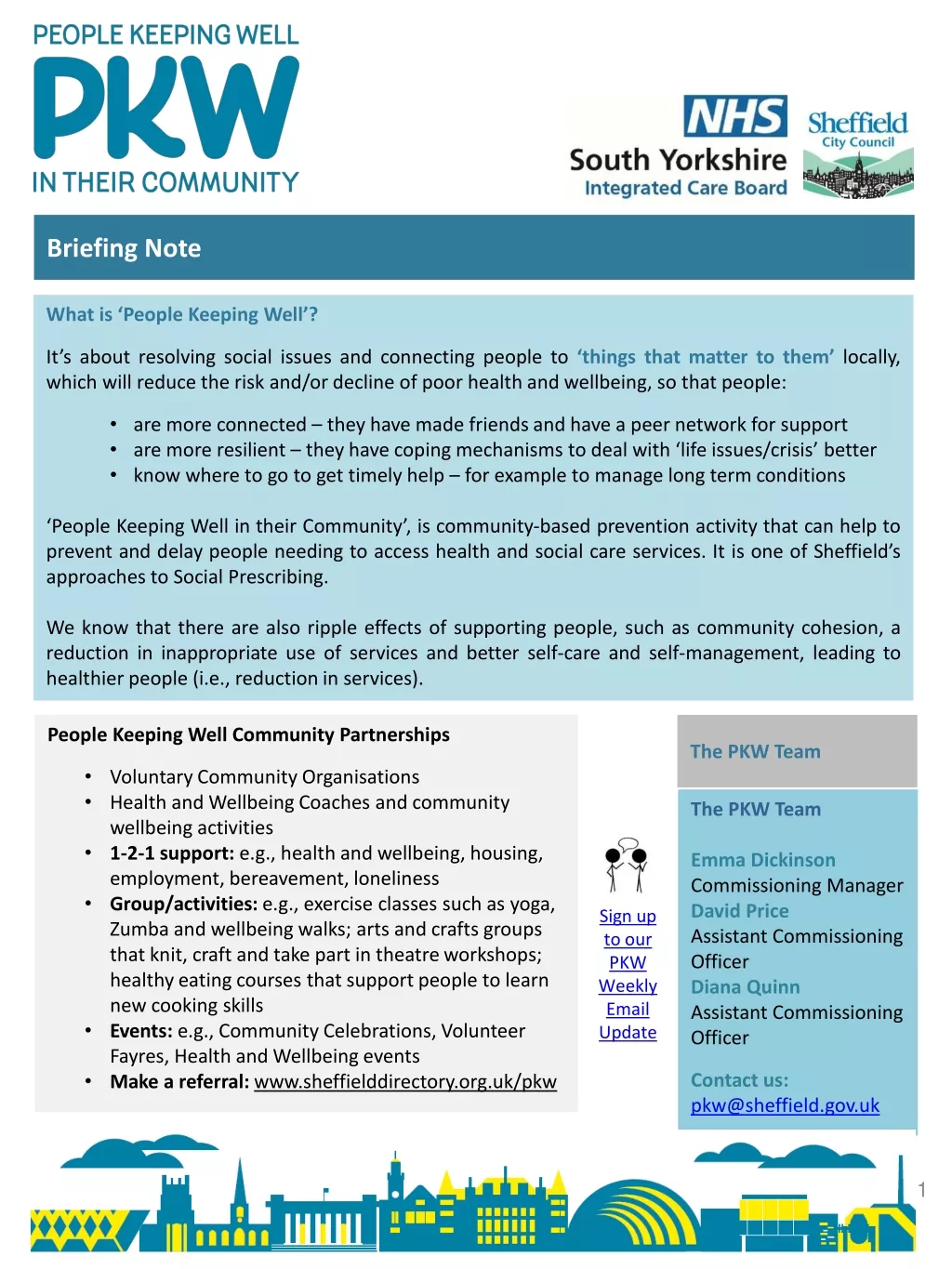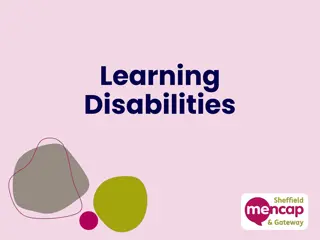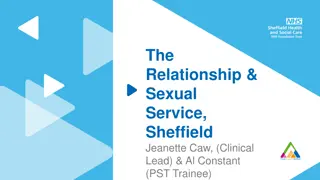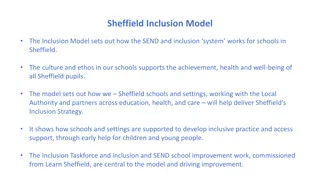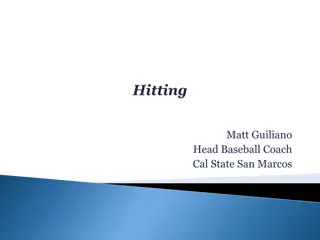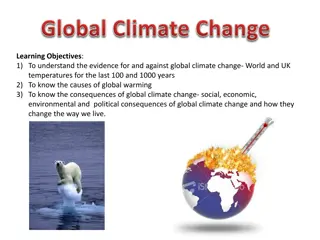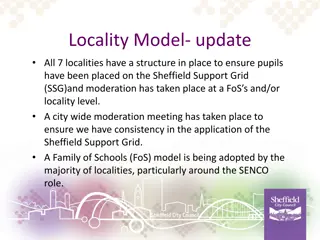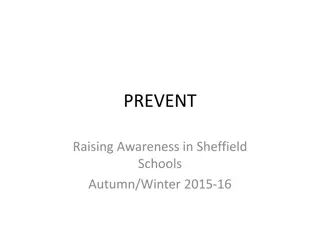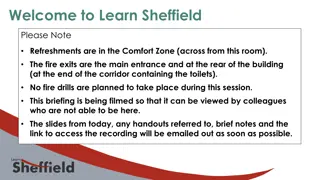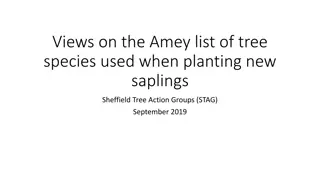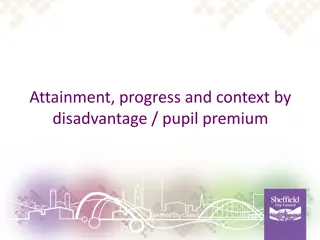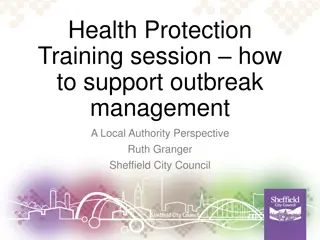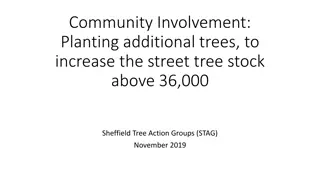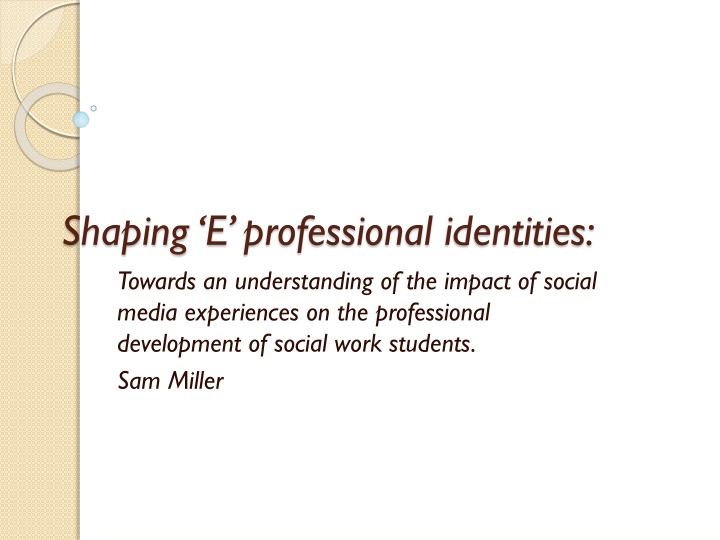
Impact of Social Media on Professional Development
Explore the impact of social media experiences on professional development of social work students, focusing on the construction of professional identity, E-professionalism, and critiques of social media. It discusses the evolving landscape of professional identities and the challenges faced in maintaining professionalism in the digital age.
Download Presentation

Please find below an Image/Link to download the presentation.
The content on the website is provided AS IS for your information and personal use only. It may not be sold, licensed, or shared on other websites without obtaining consent from the author. If you encounter any issues during the download, it is possible that the publisher has removed the file from their server.
You are allowed to download the files provided on this website for personal or commercial use, subject to the condition that they are used lawfully. All files are the property of their respective owners.
The content on the website is provided AS IS for your information and personal use only. It may not be sold, licensed, or shared on other websites without obtaining consent from the author.
E N D
Presentation Transcript
Shaping E professional identities: Towards an understanding of the impact of social media experiences on the professional development of social work students. Sam Miller
So Shall (it forever be) Media I know there s stuff on the Internet about me and what I used to do, but it s very old now! (Evaluation Participant 2014)
Social MEdia Introduction The context of the study- Social media; professional identity and `E` professionalism; Messages from literature; Training evaluation; questionnaire and focus group; THEMES and conclusions; The limitations of the research and what next.
Social Media and social networking sites (or SNS) can be defined as: General virtual communication processes- specific electronic Internet tools; - blogs, Facebook, Linkedin, Twitter, Snapchat. Allowing individuals to: construct public/semi-public profiles (networked systems); view and develop personal and professional connections.
Social Media critique The control of functions and forms of social media: Business imperatives (wealth creation- trample competition); Partnership and user-generated content are inherently impossible; `Clicktivism`- Passive? Active?
Social work, Professionalism and Problems! Professional identity Hierarchical structuring/restricted autonomy No singular, precise definition and understanding of professionalism. Social Work in the 1990 s: the rolling out of Managerialism; the expansion of Service User involvement.
E professionalism Defined The attitudes and behaviours reflecting traditional professionalism, positioned in social media. More than mere Netiquette- . The Construction of professional identity; The Demonstration of professionalism; The Portrayal of the occupation; It does not broaden the area of professionalism tenets, but does address existing ones as they are `manifested or shown to the on-line public`.
Purpose of the research Experiences of students using social media rather than focusing on ethics or particular forms of social media use; use social media to construct and maintain professional Identity; Identify good practice/ethical issues in social media use by students, recognising the multiple dimensions and domains of student experiences.
The Research Process-Yr 1 social work students 1. Training Evaluation N=82: Key data: Of the 82 students, 73 used social media daily. 76 students used FB, 37 used Twitter: 49 used Instagram; with sites such as Linkedin, Reddit, Snapchat and Mumsnet:between 1-9 uses each. 2. On-line questionnaire; 3. Focus group.
On-line Questionnaire N=13 Findings Benefits of using social media: Information gathering, networking, peer-support, collaborative working; Professional Guidance was adequate, but ; Pitfalls and Ethical Dilemmas (but some comments might underplay the challenges)- As long as you use social media appropriately there shouldn't be a problem. Participant 5 (Questionnaire).
The Focus Group Findings (N=6) Social Media use and Settings; Social Media and categories of learning development; Categories of social media experience; Personal/Professional Identities and relationships with others; The Development (pre training), and current Curation/Consolidation of Professional Identity.
The Development and Consolidation of Professional Identity Findings- Detail Ethical judgements; Two hats/One Head dilemma; Reflection, Relexivity, and Negotiating a new `E` Professional identity.
Ethics and Judgements in pre Ethics and Judgements in pre training work experiences: training work experiences: he kept messaging me and messaging me . It was only, `hi how you doing, are you alright` , .eventually I just messaged him back and I said ,`Look! I can t talk to you anymore, it s not professional. Participant 6 (FG=Focus group)
The Construction and Portrayal of Professional Identity On Twitter, following people and finding out what they are doing and what is happening in the world em the horrors em, homophobia. And then there s Peter Tatchell. I follow him because he (Owen Jones) does, and it does link to, they re all kind of interlinked to who I am. I am generalising, but if it s interesting to me regarding my values and beliefs, then I imagine it s got to be interesting to other people as well for those with similar values and beliefs in social work. Participant 3 (FG)
Dilemmas, restrictions and challenges of professional life I just think that Facebook life and professionalism is like you ve got two different hats on. This is me party outfit and am having a good time letting my hair down, and the other one is like, `I m at work now, behave`. Participant 3 (FG)
E Professional Identity- Creation or Curation Establishing the grounds in negotiating a professional identity with friends and family, the significance of curating a professional identity from much broader social media experiences (Pre-course/Parallel Activities) Managing Conflicting demands- notions of clean breaks; integrating new learning into practice; Reflection on/for Action, and Reflexivity.
My Friend, hes got mental health issues due to his em, tumour. And I just think, I don t want to get him off my Facebook page because he was a very, very good friend. So do I unfriend him because of his behaviour, or keep him because of his lack of understanding. Participant 3 (FG) I have even unfollowed people who I think they would consider themselves as my friends and I have had to apologise to them because I know what they are doing with their life. Participant 4 (FG) I know he meant it as a joke, like, but you can t represent something like that when you are putting it out in public. I just like closed off all my access and made it a lot more private, but mm. Participant 2 (FG)
Self-Portrayal- Demonstrating `E` professionalism Well, I want to go into child protection, so I ve got to make sure that I cover all bases. I am also aware that I have got to be very careful, because that s how you present your social life. Participant 4 (FG)
Reflection on Action- Defensible Decision-making I thought to myself, `is it the right thing to do? But then I thought, `I am not doing anything, I am not saying anything inappropriate. If I do get pulled up by anybody, I can justify that my responses were reasonably positive`. There were nothing inappropriate. Participant 6 (FG)
Discussion Points- `E professionalism growth and checks Continuation of Managerialism; The expansion of service user involvement. Possibilities for empowering practice on-line, but there are risks for both service users and social workers alike, for example:- Curating the skills/knowledge-base of `E` professionalism- Identity/authenticity; Professional Development Partnership development (Slippery Slope?)
What next? Student SWs on placement with Practice Educators; Social workers in practice with service users and carers (possibly Fostering and Adoption Recruitment); Limits of the study.
Bibliography Aase, S. (2010). Toward E-Professionalism: Thinking through the Implications of Navigating the Digital World. Journal of the American Dietetic Association, 110(10), 1442-1449. doi: http://dx.doi.org/10.1016/j.jada.2010.08.020 Anderson, S. C., & Guyton, M. R. (2013). Ethics in an age of information seekers: A survey of licensed healthcare providers about online social networking. Journal of Technology in Human Services, 31(2), 112-128. doi: http://dx.doi.org/10.1080/15228835.2013.775901 Ayres, S. (2011). The Future for Personalisation? Service Users, Carers and Digital Engagement. Cain, J., & Romanelli, F. (2009). E-professionalism: a new paradigm for a digital age. Currents in Pharmacy Teaching and Learning, 1(2), 66- 70. doi: http://dx.doi.org/10.1016/j.cptl.2009.10.001 Creswell, J. W. (2013). Qualitative Inquiry and Research Design: Choosing Amongst Five Approaches (3rd ed.). Los Angleles. Fang, L., Mishna, F., Zhang, V. F., Van Wert, M., & Bogo, M. (2014). Social Media and Social Work Education: Understanding and Dealing with the New Digital World. Social Work in Health Care, 53(9), 800-814. doi: 10.1080/00981389.2014.943455 Fuchs, C. (2014). Social Media: A Critical Introduction. London: Sage. Hickson, H. (2012). Reflective Practice Online Exploring the Ways Social Workers Used an Online Blog for Reflection. Journal of Technology in Human Services, 30(1), 32-48. doi: 10.1080/15228835.2012.662855 Higham, P. (2006). Social Work: Introducing Professional Practice. London: Sage. Kilpel inen, A., P ykk nen, K., & Sankala, J. (2011). The Use of Social Media to Improve Social Work Education in Remote Areas. Journal of Technology in Human Services, 29(1), 1-12. doi: http://dx.doi.org/10.1080/15228835.2011.572609 Krueger, R. A. (1998). Developing Questions for Focus Groups. Thousand Oaks. Lombard, D. (2011). What Makes a Professional. Community Care Magazine. Retrieved from http://www.communitycare.co.uk/2011/01/28/what-makes-a-professional/ Mishna, F., Bogo, M., Root, J., Sawyer, J.-L., & Khoury-Kassabri, M. (2012). It just crept in : The Digital Age and Implications for Social Work Practice. Clinical Social Work Journal, 40(3), 277-286. doi: 10.1007/s10615-012-0383-4 Robbins, S. P., & Singer, J. B. (2014). From the Editor The Medium Is the Message: Integrating Social Media and Social Work Education. Journal of Social Work Education, 50(3), 387-390. doi: 10.1080/10437797.2014.916957 Smith, J. A., Flowers, P., & Larkin, M. (2009). Interpretive Phenomenological analysis Theory Method and Research. London: Sage. Thackray, L. (2014). Obstacles to and Engagement with Social Media. In J. Westwood (Ed.), Social Media in Social Work Education. Northwich: Critical Press. Westwood, J. (2014). Social Media in Social Work Education. In J. Westwood (Ed.), Social Media in Social Work Education. Northwich: Critical Publishing.

